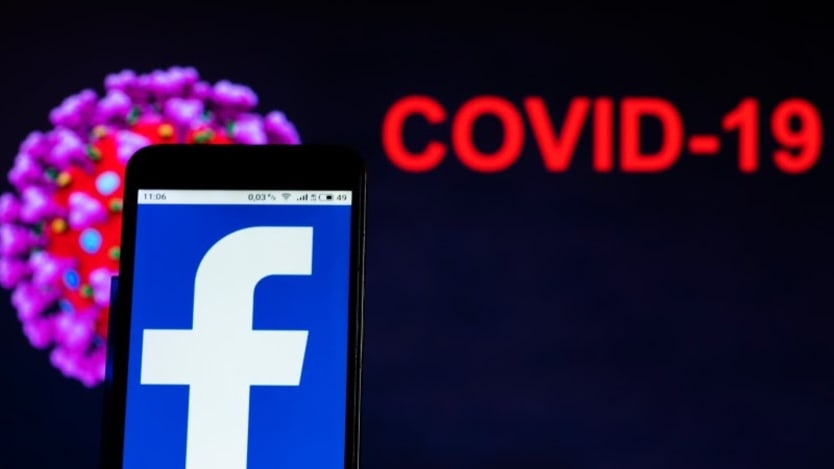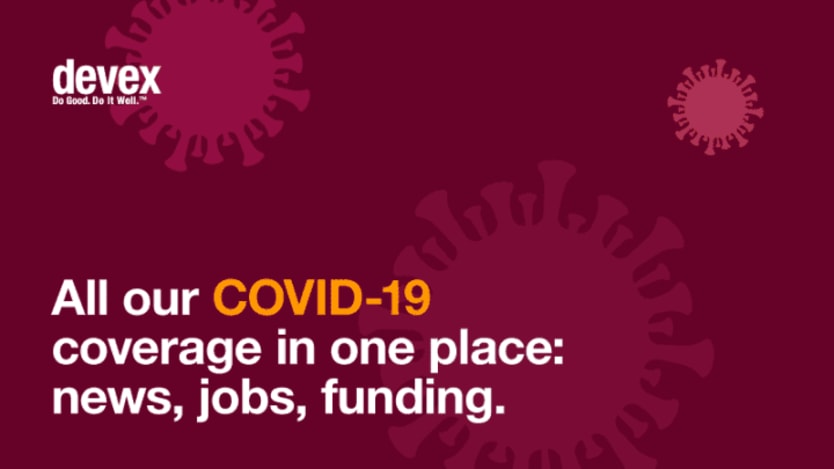Facebook ramps up fight against COVID-19 vaccine misinformation

Facebook is expanding its efforts to fight misinformation on vaccines and the COVID-19 pandemic.
On Monday, the company announced that it will remove posts containing false claims about COVID-19 and all vaccines, including assertions that the coronavirus is man-made or manufactured, that it is safer to get the virus than the vaccine, or that vaccines cause autism. It’s the latest in a series of changes Facebook has made to its content policies over the past year, as harmful and unfounded claims have proliferated.
“Today, following consultations with leading health organizations, including the World Health Organization (WHO), we are expanding the list of false claims we will remove to include additional debunked claims about the coronavirus and vaccines,” Facebook said in a statement. “These new policies will help us continue to take aggressive action against misinformation about COVID-19 and vaccines.”
Facebook has faced criticism in recent months over its handling of vaccine-related misinformation. The company used to downrank vaccine misinformation, pushing falsehoods lower on users’ news feeds but generally allowing it to remain on the platform. In December, it began shifting its strategy to remove these posts from its platform entirely.
The latest changes will target pages, groups, and accounts that repeatedly share debunked claims. They will also apply to Instagram, which Facebook owns.
Facebook’s efforts are not just about battling misinformation, the company’s head of health, Kang-Xing Jin, told Devex on Monday.
“Facebook is running the largest worldwide campaign to promote authoritative COVID-19 vaccine information,” he said. The company compares its work helping people learn where and how to get vaccinated to its work helping people find information on how to vote during recent elections.
Jin has spent much of the past year figuring out how Facebook can be a source of credible information about the COVID-19 pandemic. To do this, he and his team have worked with WHO, UNICEF, and ministries of health and governments in more than 120 countries. For example, Facebook has partnered with the government in Indonesia to create a helpline on WhatsApp, the messaging platform owned by Facebook, to share information on vaccine availability.
“Misinformation really thrives when there’s a void or an absence of accurate information or trusted information,” he said at Devex’s 2020 Prescription for Progress event, held last February in San Francisco.
Any crisis creates anxiety and ambiguity, said Sarah Shirazyan, content policy manager at Facebook, at a recent online event hosted by the Center for Strategic and International Studies. Facebook is trying to “mitigate that ambiguity” by “providing relevant and accurate information,” Shirazyan said.
But as the company ramps up its efforts to fight vaccine misinformation, it is trying to find the right balance between safety and freedom of expression.
“If we get rid of all vaccine misinformation, or vaccine debate, let's put it this way: people will feel there is something conspiratorial going on,” Shirazyan said.
“There’s been way too much denialism in the public health community about the potential of this growing dissent.”
— Heidi Larson, founding director, the Vaccine Confidence Project at the London School of Hygiene & Tropical MedicineIn addition to removing false claims, Facebook is giving $120 million in advertising credits to help NGOs, United Nations agencies, and health ministries reach people with COVID-19 vaccine and health information, and conducting surveys on people’s willingness to get a COVID-19 vaccine.
The company is also building on its surveys on mask-wearing, which have garnered 50 million responses, by adding questions about vaccine intent and uptake.
This data “will allow health experts to understand in almost real-time people’s intent to vaccinate,” Jin said.
Facebook is taking these steps in consultation with experts including Heidi Larson, founding director of the Vaccine Confidence Project at the London School of Hygiene & Tropical Medicine.
Larson has applauded Facebook’s efforts to fight vaccine misinformation. But she has also noted that people intent on spreading vaccine misinformation who are restricted on Facebook have other places to turn in order to spread their message.
“Now social media is putting the reins on it,” she said at the CSIS event. “And it’s going to go partly underground.”
Larson has called on the public health community to listen and respond to the concerns of people with questions, rather than dismissing them as anti-vaxxers.
“There’s been way too much denialism in the public health community about the potential of this growing dissent, and even conspiracy,” she said. “But it’s capturing far more of the public’s attention, and with public health implications that we really need to get ahead of this.”

Search for articles
Most Read
- 1
- 2
- 3
- 4
- 5
